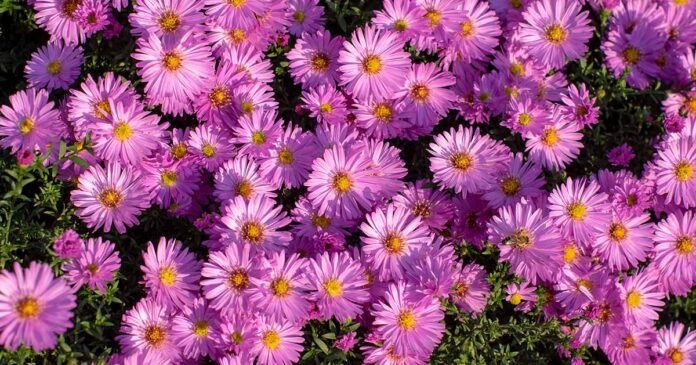10. Wargrave Variety
A. alpinus ‘Wargrave Variety’ is a perennial alpine aster cultivar suitable for growers in Zones 4 to 7.

Flowers resembling daisies consist of sparse lavender-pink rays around prominent gold centers and bloom from late spring to early summer.
With a mature height of between eight and 12 inches tall, each bloom is borne on its own stem, unlike branching, clustered varieties.
This type prefers full sun and average soil that drains well. It is very tolerant of cold, drought, part shade, and poor soil.
11. Wood’s Pink
S. novae-angliae ‘Wood’s Pink,’ a New York native perennial cultivar, is a dwarf type that tops out at 12 to 18 inches tall. It thrives in Zones 4 to 8.
Bloom time is from late summer to early fall, with clusters of semi-double fuchsia rays surrounding vivid gold disks.
This fast-growing variety forms a mounding, bushy habit.
Plant in full sun with moist, rich soil that drains well. This type tolerates clay, drought, excess moisture, salt, and some shade.
Find plants in four-inch pots now available at Walmart.
In the Pink
It’s always fun to add a new plant to the garden, especially when it’s a vigorous, undemanding one with pretty flowers.
But beds, borders, and containers overflowing with pink flowers do more than just brighten up the landscape.


They’re an open invitation to a variety of pollinators and hungry backyard birds.
When choosing your flowers, consider dwarf varieties when you want a compact growth habit suitable for small spaces and container gardening.
Large native species are your best bet where there’s room for naturalization, such as along a property perimeter, or in a meadow.
We can’t wait to hear how your new favorites play a role in your garden scheme this year. Please tell us in the comments section below.
To learn more about growing asters in your garden, check out the following guides next:



